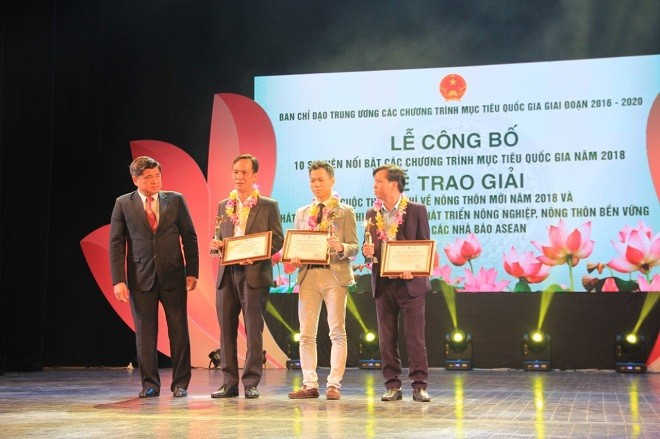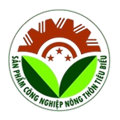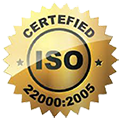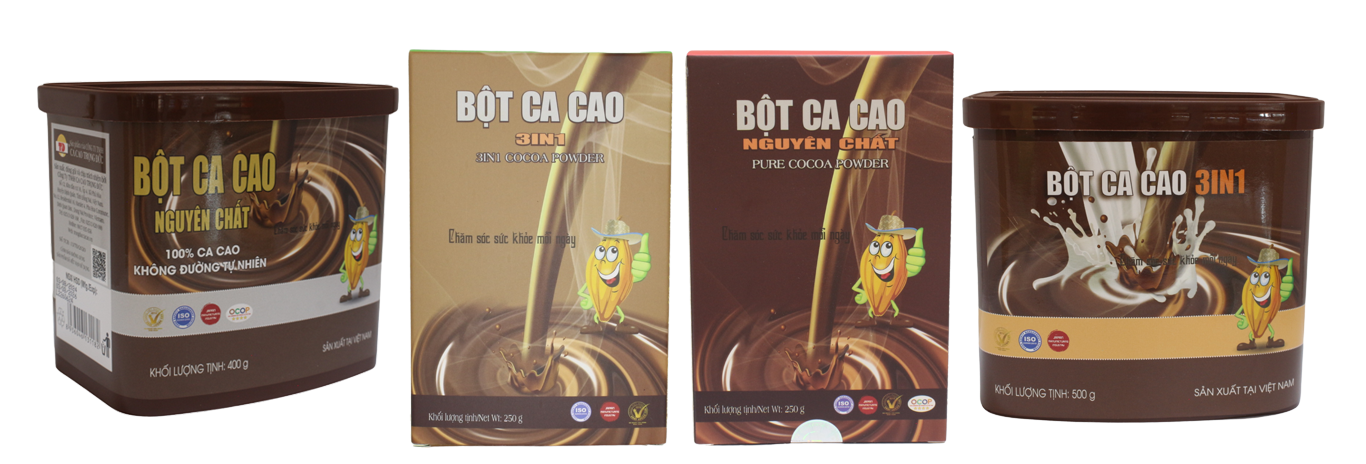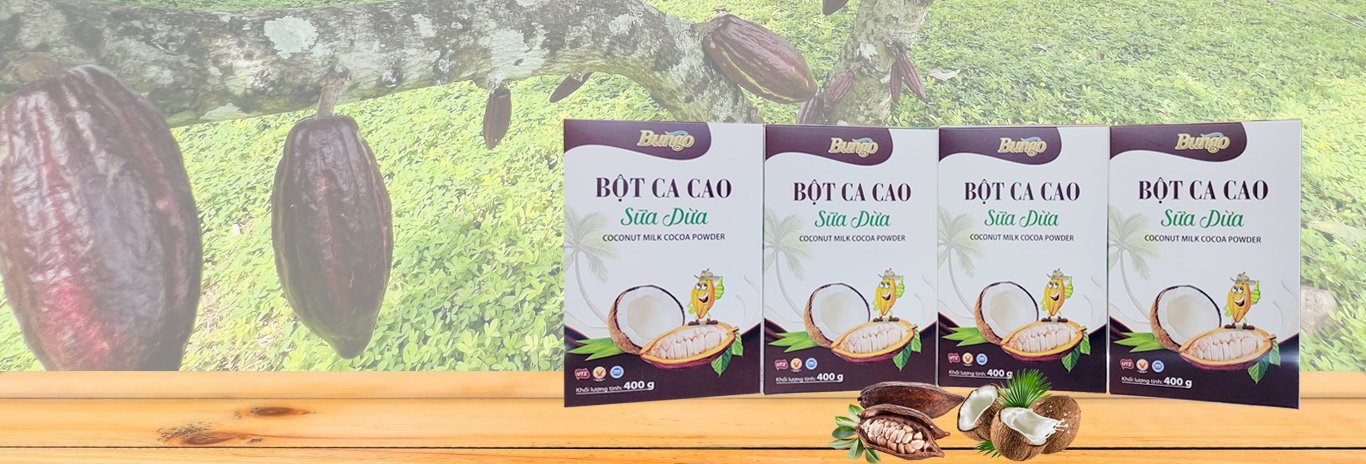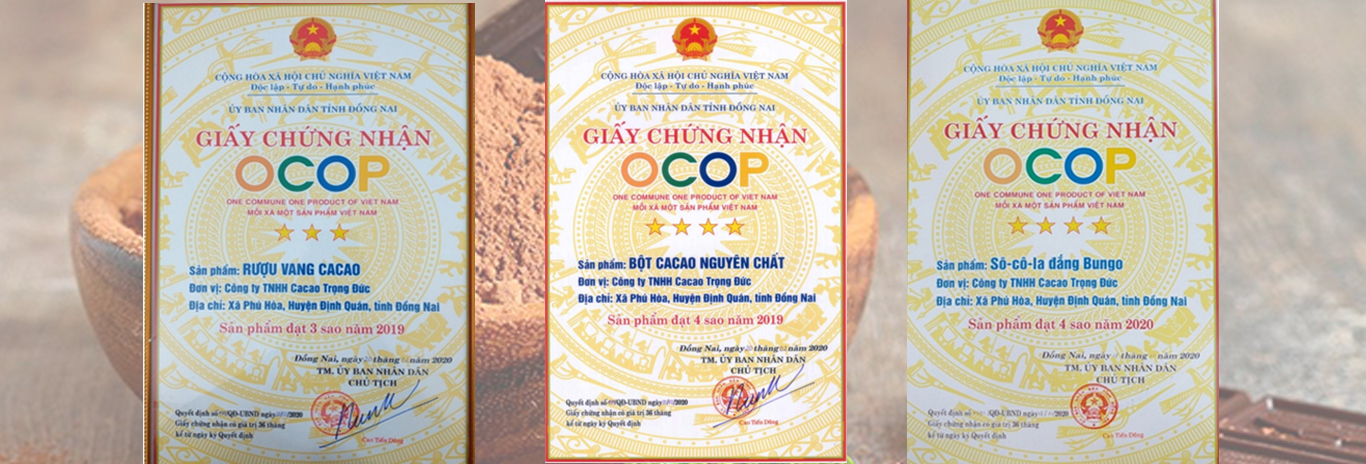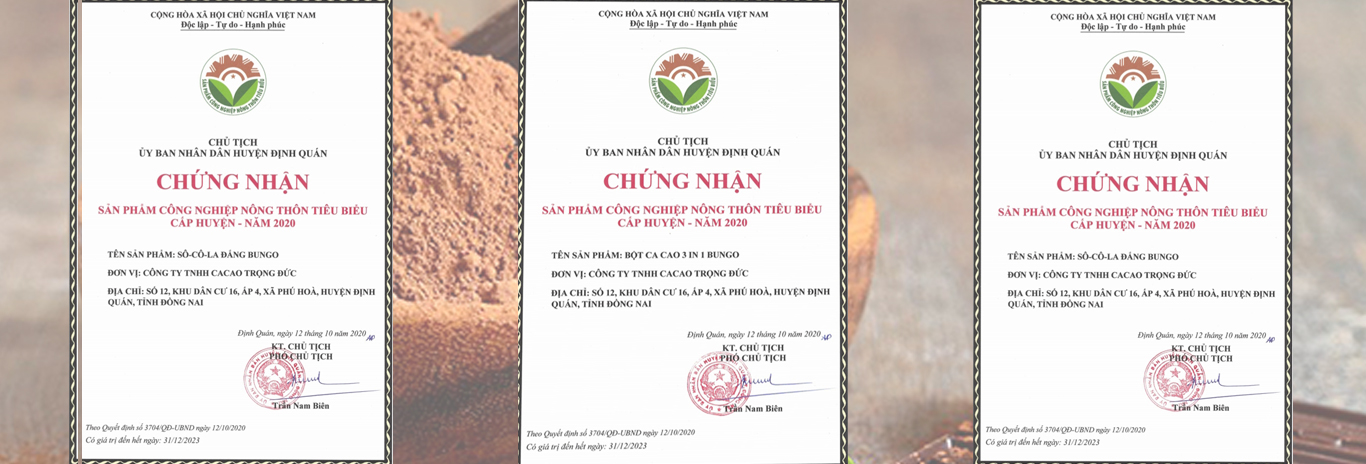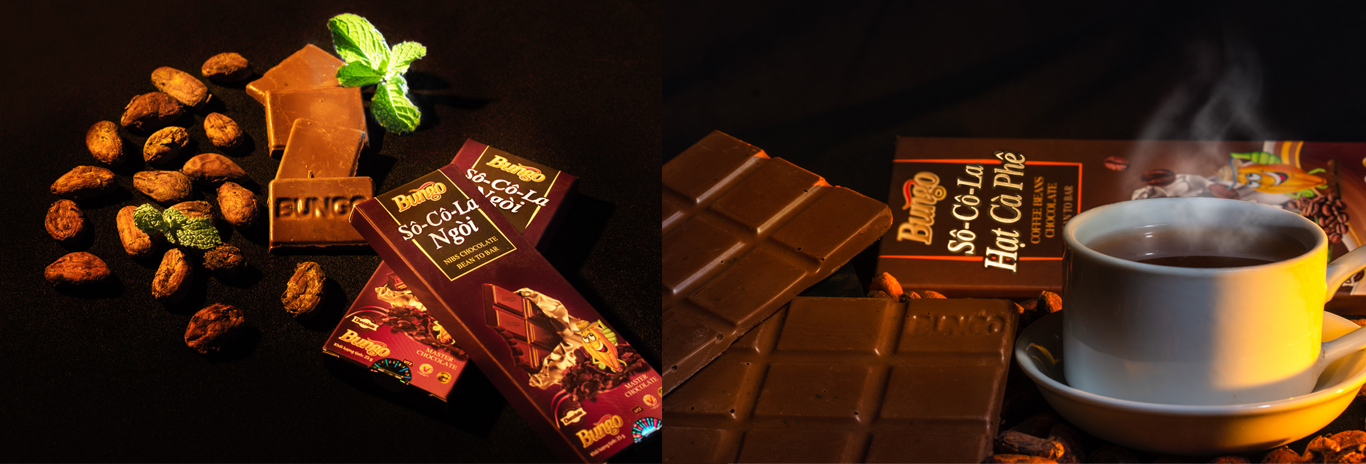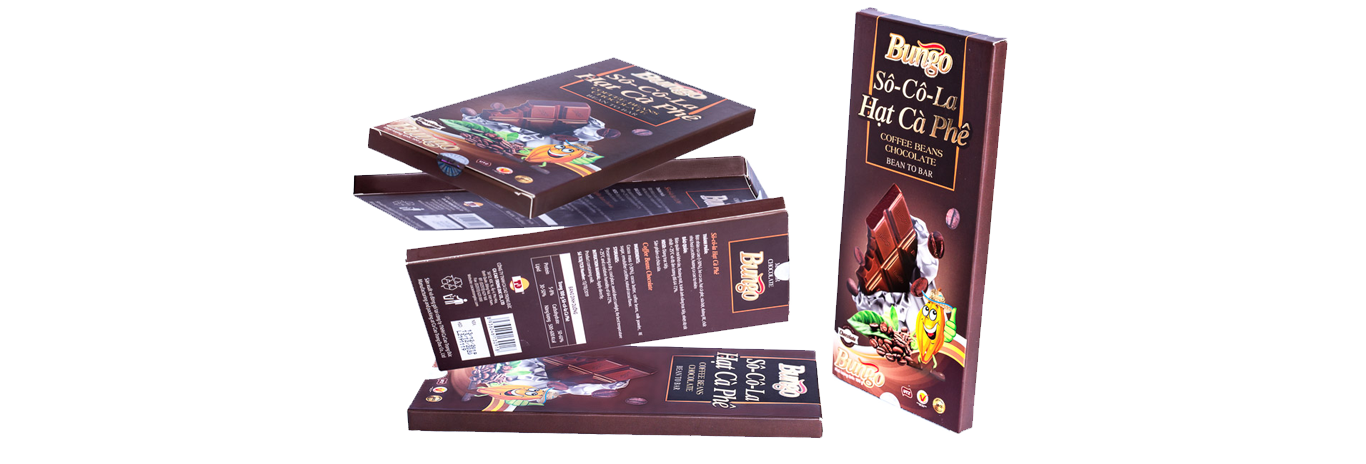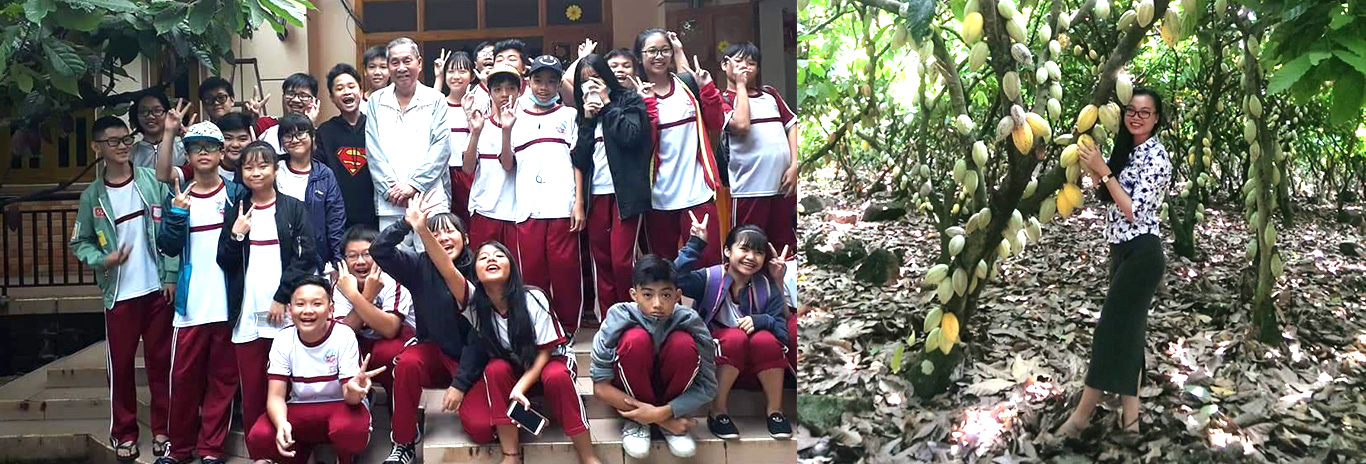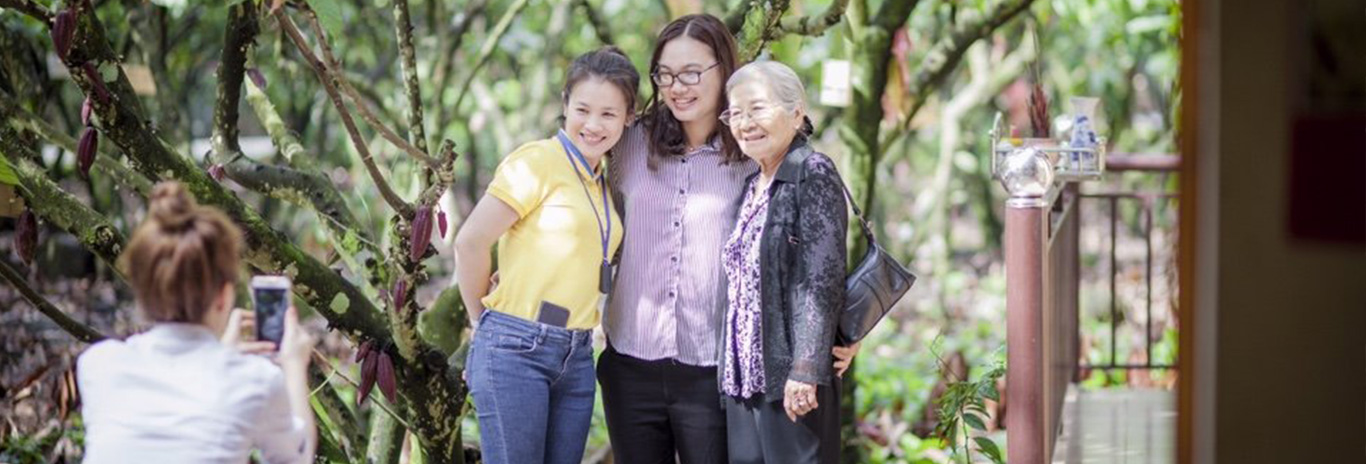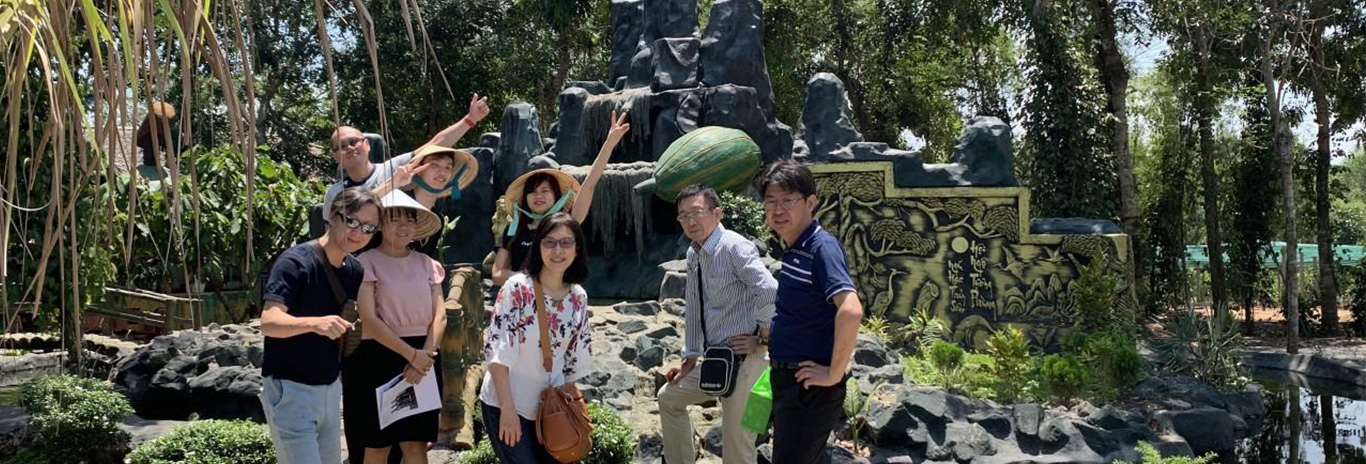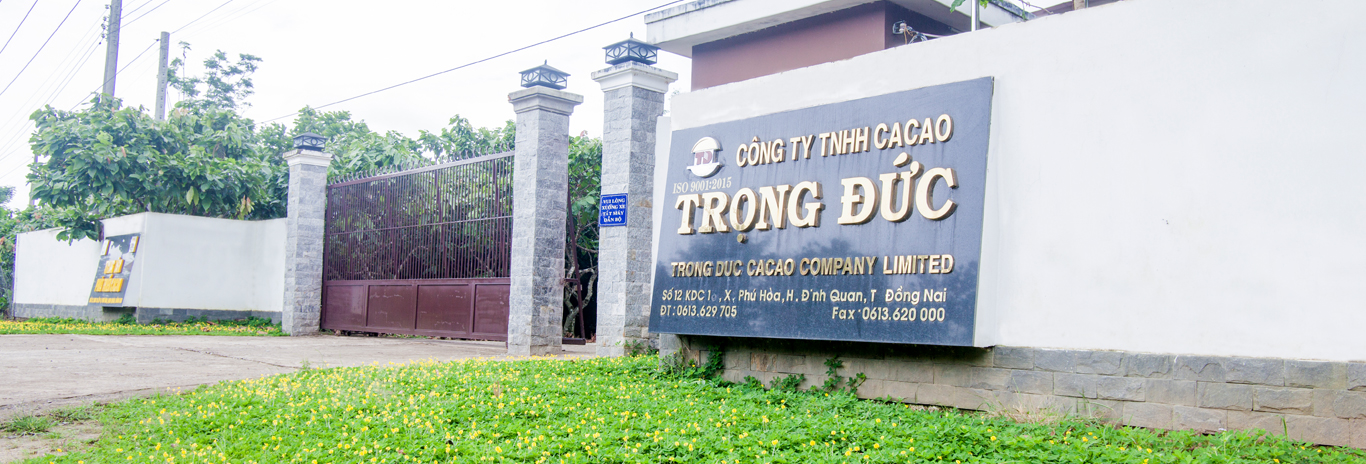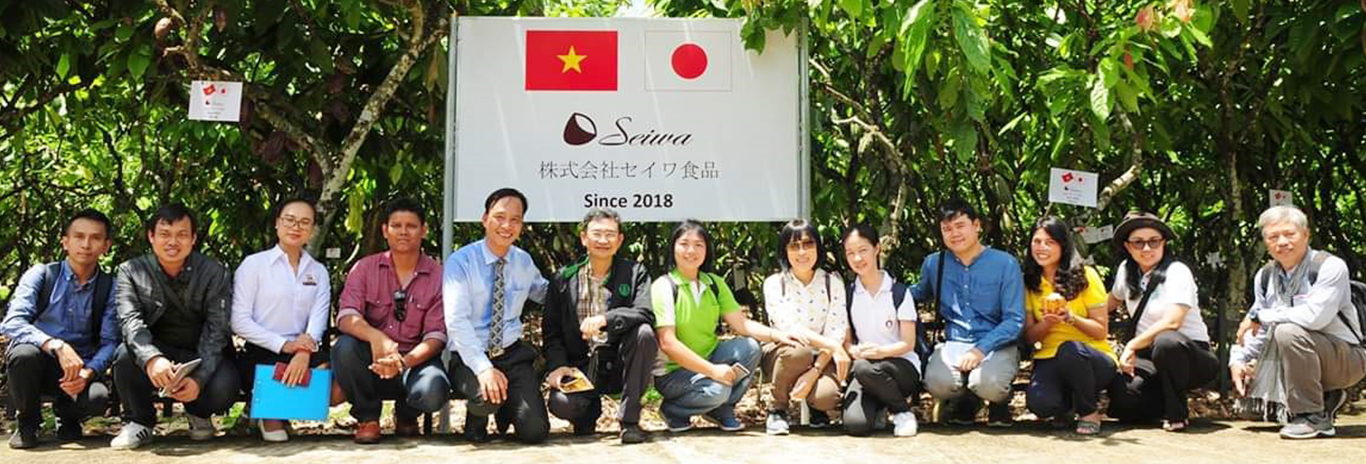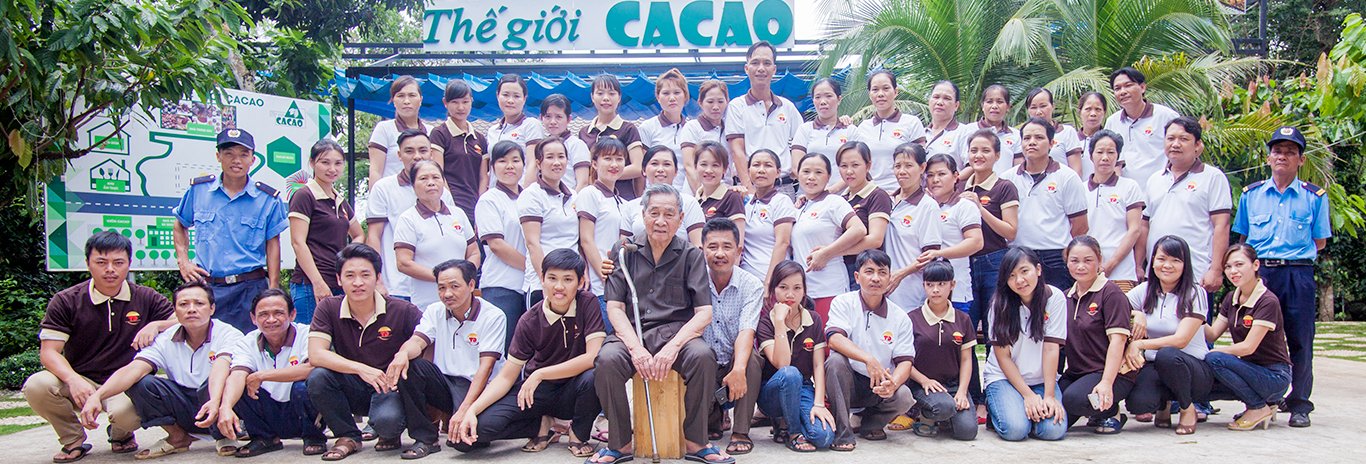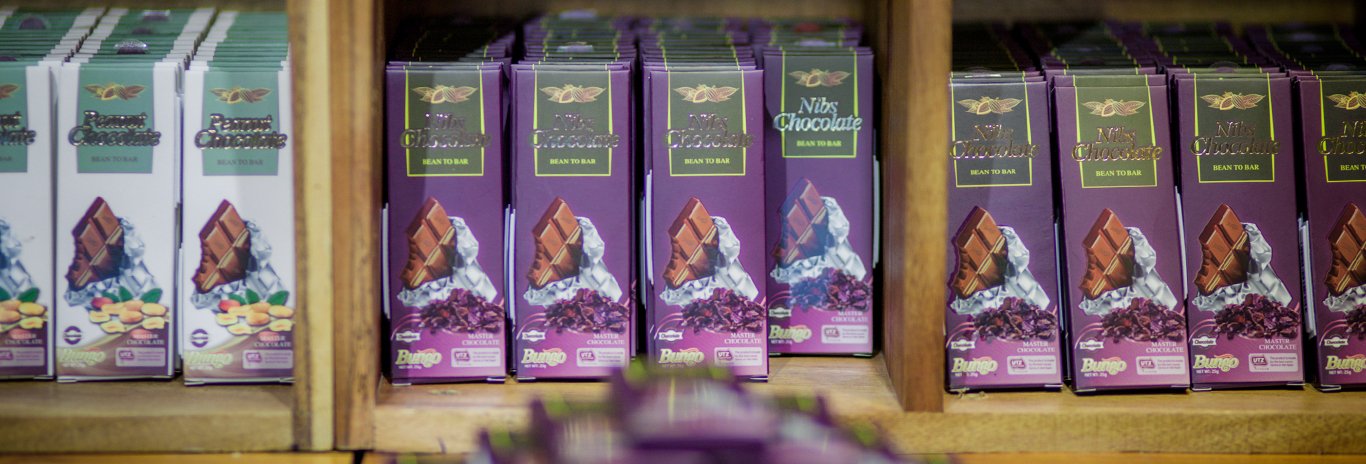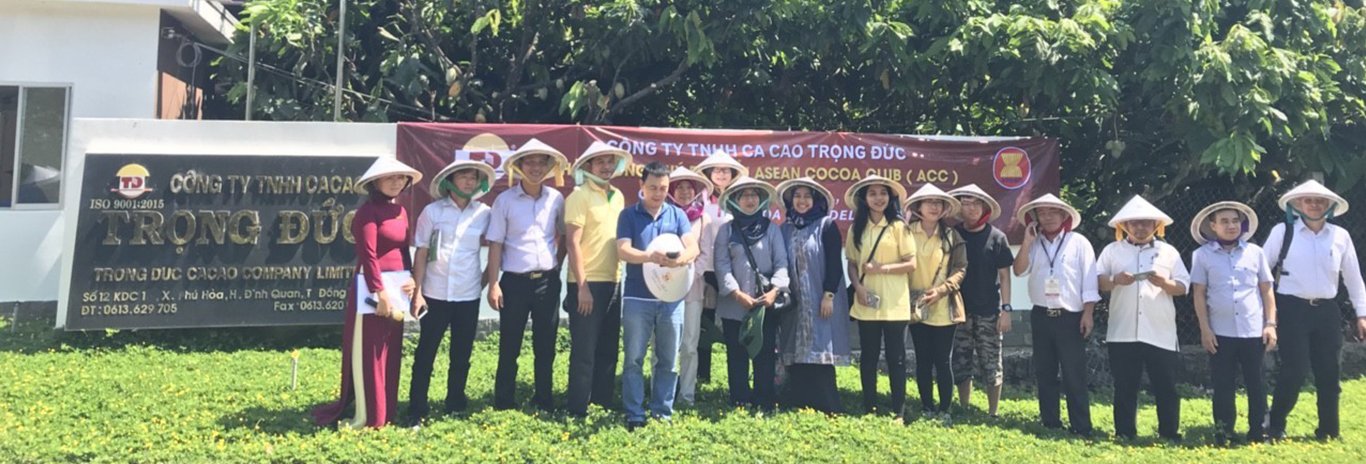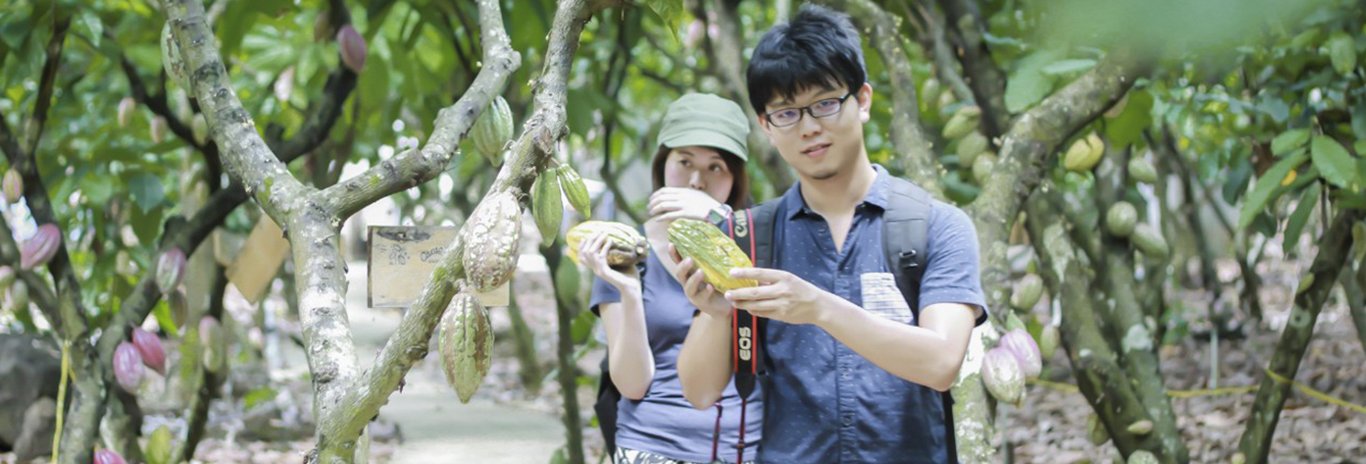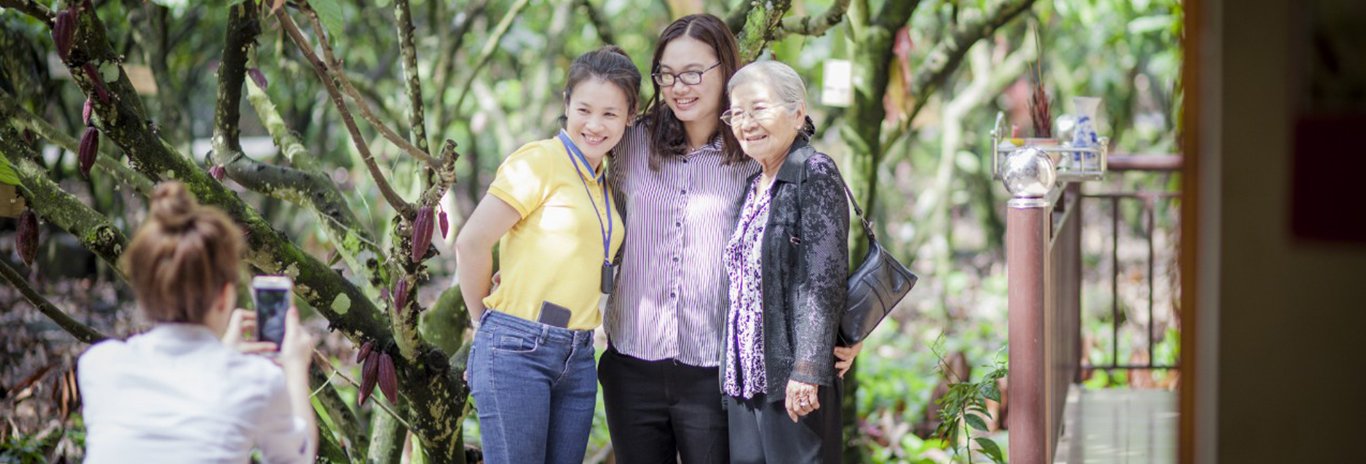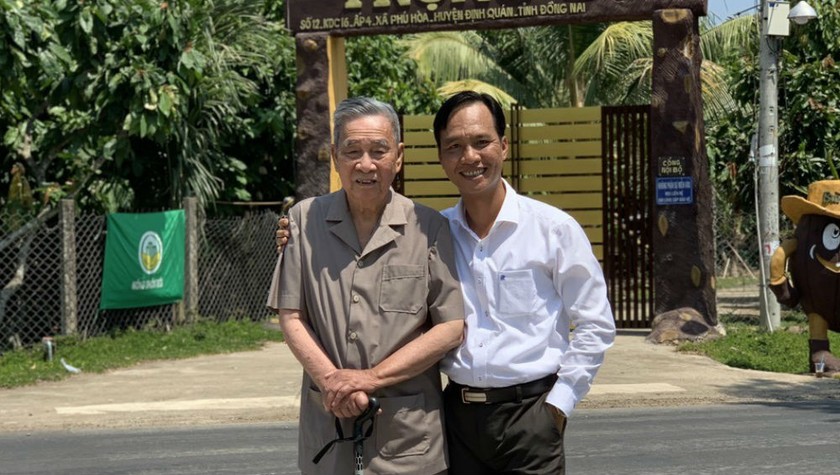After the cocoa beans could not be sold, our people "dumped" the raw fruit at a low price, but imported the finished product at a high price. Then people only took the seeds without taking advantage of other ingredients such as water, fruit flesh... so his father thought why don't Vietnamese people make the finished product themselves, taking full advantage of the benefits from this fruit.
When he retired, the old physician began to do what he had thought about in his unit. With the rare salary he had saved, he decided to start a business by buying land and growing cocoa trees. In the early stages of implementation, he encountered many difficulties, not only opposition from his relatives but also from many local people.
And then with his determination, in 2006, Mr. Kham went to the arid land in Phu Hoa commune and established Trong Duc Company Limited. With the policy of being proactive in raw material areas for product processing, from a few hectares of his family's cocoa, Mr. Kham has linked with farmers in three provinces of Dong Nai, Lam Dong, and Binh Thuan to expand the raw material areas to 1,000. hectares in 2010.
Mr. Kham spent most of his accumulated money to buy seedlings, then sold them to farmers for 6,000 VND/tree. Farmers only have to pay half in advance, the remaining half will be paid after harvest. However, because the cocoa growing area increased too quickly, the technical team was not enough to provide advice to farmers, causing the trees to not grow as expected, combined with the rise of other industrial crops such as cashew and pepper. , people cut down cocoa trees.
Being a business enthusiast, Mr. Khanh initially did not pay attention to his father's work. “In 2010, when the company was having difficulties, my father called out to help him. Actually, at that time, his mind was only thinking about living near his father to convince him to return to the city to rest. Because at that time I was doing business and was quite well off. What's left here is turned into a farm for the family to rest on weekends."
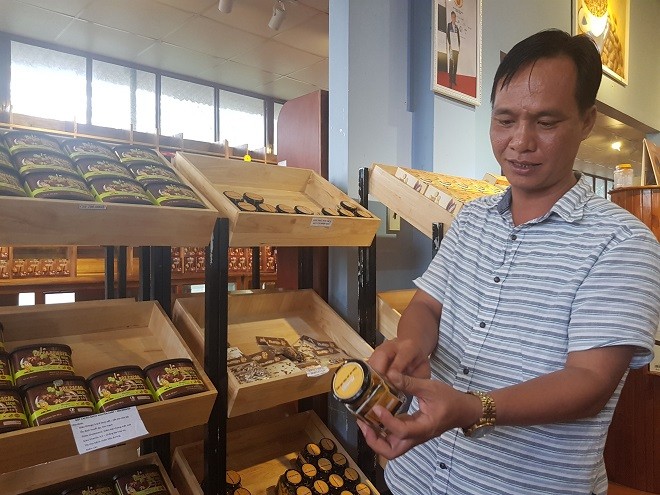
However, when he came to live near his father, heard his father's concerns, went with his father to meet the farmers, and saw the enthusiasm of the farmers in the cocoa industry, Mr. Khanh suddenly felt he had a responsibility to Father fulfilled his wish to develop cocoa trees. And since then, Mr. Khanh officially took over the company.
In 2012, the company fell into difficulties because the raw material area decreased by more than 700 hectares. To help people have more confidence in this crop, in 2015, Trong Duc sold all land in the city to implement a project to completely eliminate debt from selling seedlings to farmers. Gradually, people trusted Trong Duc more and replanted this tree.
"At that time, in addition to developing raw material areas, my father was able to research a number of initial products from cocoa, such as cocoa powder, chocolate, cocoa wine... but they were almost not consumed. Okay. That's why I have to think of ways to sell. On the one hand, I consolidated the organization of the raw material area, which was reduced by up to 70% compared to before.
We re-signed contracts with farmers, provided technical guidance, accepted product purchases... with the criteria my father set to ensure farmers' rights.
We may lose money, but we will not let it happen. Farmers lose money.
On the other hand, I look for ways to sell, selling from cocoa beans to cocoa products. I have to develop the processing segment to reduce the amount of raw goods because selling raw beans will be fraught with many risks. My goal is to reduce the sale of raw cocoa beans and promote processing."
To realize his father's dream, at the end of 2014, Mr. Khanh spent 14 consecutive months working hard with the Japanese. As a result, Kenkyusho Company - a joint venture between Trong Duc and a Japanese enterprise, was established in August 2015 in Singapore, in which Trong Duc specializes in raw materials and production, the Japanese will take care of the market. Since then, Trong Duc has produced many products for domestic and foreign consumers.
Now, looking back at this incident, Mr. Khanh and his son see it as a "stumble" that business people have to go through. Then he gently continued to write about his father's dream - the dream of a cocoa corporation in the Southeast region, where people will enjoy clean cocoa produced by the farmers themselves.
The desire to bring Vietnamese cocoa to the world level
Leading us to visit a booth with small chocolate bars filled with coconut, cashew, peanut... under the Bungo brand, Mr. Khanh proudly said: "These products are all produced by the company to serve customers." Tourists come here to relax. In addition, chocolate is also exported to Korea and Japan. To date, there have been nearly 30 products introduced to the world".
To bring Vietnamese cocoa to the world market, in 2014, Mr. Khanh found a partner, a Japanese business. At that time, the Japanese side sent people to the company to thoroughly understand the process of producing raw materials, processing and placing orders.
"When there is output, the price of fresh cocoa from farmers is also better. Partners import chocolate products for processing and packaging, and they know that Vietnam produces chocolate, not exporting beans. as rough as before" - Mr. Khanh confided.
